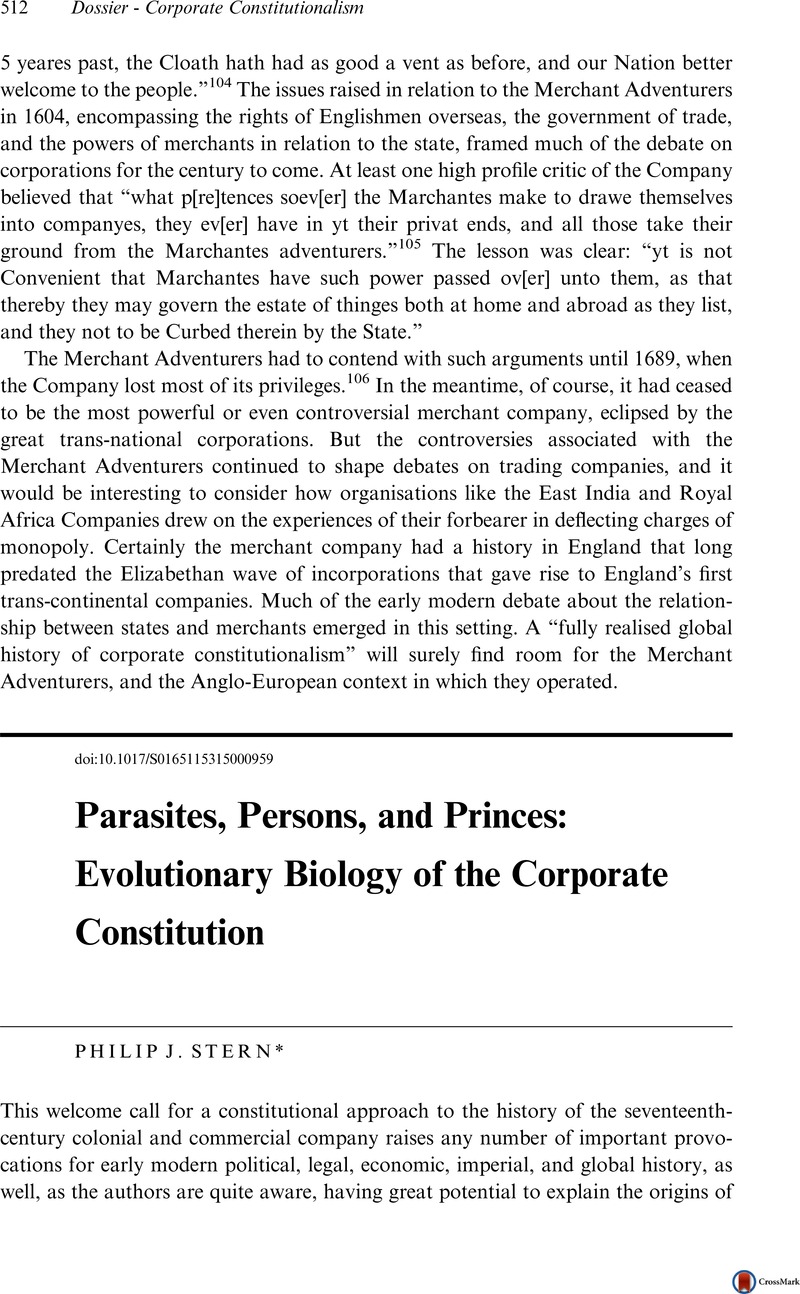No CrossRef data available.
Published online by Cambridge University Press: 18 January 2016

Philip Stern is Sally Dalton Robinson Associate Professor at Duke University and a specialist in the history of Britain and the British Empire particularly in the early modern period.